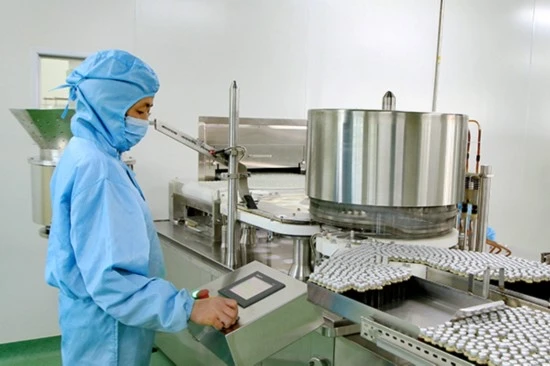- Afrikaans
- Albanian
- Amharic
- Arabic
- Armenian
- Azerbaijani
- Basque
- Belarusian
- Bengali
- Bosnian
- Bulgarian
- Catalan
- Cebuano
- Corsican
- Croatian
- Czech
- Danish
- Dutch
- English
- Esperanto
- Estonian
- Finnish
- French
- Frisian
- Galician
- Georgian
- German
- Greek
- Gujarati
- Haitian Creole
- hausa
- hawaiian
- Hebrew
- Hindi
- Miao
- Hungarian
- Icelandic
- igbo
- Indonesian
- irish
- Italian
- Japanese
- Javanese
- Kannada
- kazakh
- Khmer
- Rwandese
- Korean
- Kurdish
- Kyrgyz
- Lao
- Latin
- Latvian
- Lithuanian
- Luxembourgish
- Macedonian
- Malgashi
- Malay
- Malayalam
- Maltese
- Maori
- Marathi
- Mongolian
- Myanmar
- Nepali
- Norwegian
- Norwegian
- Occitan
- Pashto
- Persian
- Polish
- Portuguese
- Punjabi
- Romanian
- Russian
- Samoan
- Scottish Gaelic
- Serbian
- Sesotho
- Shona
- Sindhi
- Sinhala
- Slovak
- Slovenian
- Somali
- Spanish
- Sundanese
- Swahili
- Swedish
- Tagalog
- Tajik
- Tamil
- Tatar
- Telugu
- Thai
- Turkish
- Turkmen
- Ukrainian
- Urdu
- Uighur
- Uzbek
- Vietnamese
- Welsh
- Bantu
- Yiddish
- Yoruba
- Zulu
Nov . 08, 2024 16:39 Back to list
oxytetracycline injection for poultry
Oxytetracycline Injection for Poultry Uses, Benefits, and Considerations
Oxytetracycline, a broad-spectrum antibiotic, has played a significant role in poultry farming for many years. Its use in poultry can help prevent and treat bacterial infections, enhancing animal health and overall productivity. As a member of the tetracycline class of antibiotics, oxytetracycline is lauded for its efficacy against a wide range of Gram-positive and Gram-negative bacteria. This article explores the uses, benefits, and considerations of using oxytetracycline injection in poultry.
Uses of Oxytetracycline in Poultry
Oxytetracycline is primarily employed to combat various bacterial infections in poultry. Common diagnoses that warrant its use include respiratory diseases, such as infectious bronchitis and mycoplasmosis, and enteric diseases like colibacillosis and fowl cholera. Its effectiveness in controlling these conditions can reduce mortality rates in flocks, thereby promoting healthier populations of birds.
The antibiotic works by inhibiting protein synthesis in bacteria, effectively stopping their growth. Because of its fast action, oxytetracycline can be administered intravenously or intramuscularly to treat acute infections or can be added to water or feed for prevention and control in cases of identified infection risks.
Benefits of Using Oxytetracycline
One of the primary advantages of using oxytetracycline in poultry is its broad-spectrum activity. This allows farmers to address multiple health issues with a single medication, streamlining treatment protocols. Furthermore, oxytetracycline is particularly beneficial in the poultry industry due to its relatively low toxicity compared to other antibiotics, making it safer for long-term use when administered properly.
oxytetracycline injection for poultry

Using oxytetracycline injection can also help reduce the economic losses associated with poultry diseases. Flocks that receive timely and appropriate treatment tend to have improved growth rates and feed conversion efficiencies. This can lead to better performance and profitability for poultry farmers. In addition, the swift action of the injection provides immediate relief, which is crucial in preventing the spread of infections within flocks.
Considerations and Challenges
Despite the numerous benefits, the use of oxytetracycline in poultry is not without its challenges. One major concern is the potential for antibiotic resistance. Overuse or misuse of antibiotics in livestock can lead to the development of drug-resistant bacteria, posing significant risks to both animal and human health. Consequently, it is imperative for poultry farmers to adhere to recommended dosages and administration schedules and to integrate alternative disease control measures alongside antibiotic treatments.
Regulatory guidelines also play a role in the use of oxytetracycline. Many countries impose strict regulations on the use of antibiotics in food-producing animals, aimed at safeguarding public health. Farmers must be informed about and compliant with these regulations to ensure that their practices are sustainable and acceptable within the industry.
Additionally, careful attention must be given to withdrawal periods—the time required after the last dosage before the birds can be processed for meat. Adhering to withdrawal times is critical for food safety and ensuring that antibiotic residues do not appear in poultry products.
Conclusion
Oxytetracycline injection has proven to be a valuable tool in poultry medicine, effectively managing bacterial infections and contributing to better animal health and productivity. However, its use demands responsible management practices to mitigate risks associated with antibiotic resistance and regulatory compliance. By balancing effective treatment with sustainable practices, poultry farmers can maintain healthy flocks while safeguarding the broader food supply and public health. As with any medical treatment, consultation with a veterinarian is essential to develop an appropriate and effective treatment plan tailored to the specific needs of the flock.
-
Guide to Oxytetracycline Injection
NewsMar.27,2025
-
Guide to Colistin Sulphate
NewsMar.27,2025
-
Gentamicin Sulfate: Uses, Price, And Key Information
NewsMar.27,2025
-
Enrofloxacin Injection: Uses, Price, And Supplier Information
NewsMar.27,2025
-
Dexamethasone Sodium Phosphate Injection: Uses, Price, And Key Information
NewsMar.27,2025
-
Albendazole Tablet: Uses, Dosage, Cost, And Key Information
NewsMar.27,2025













